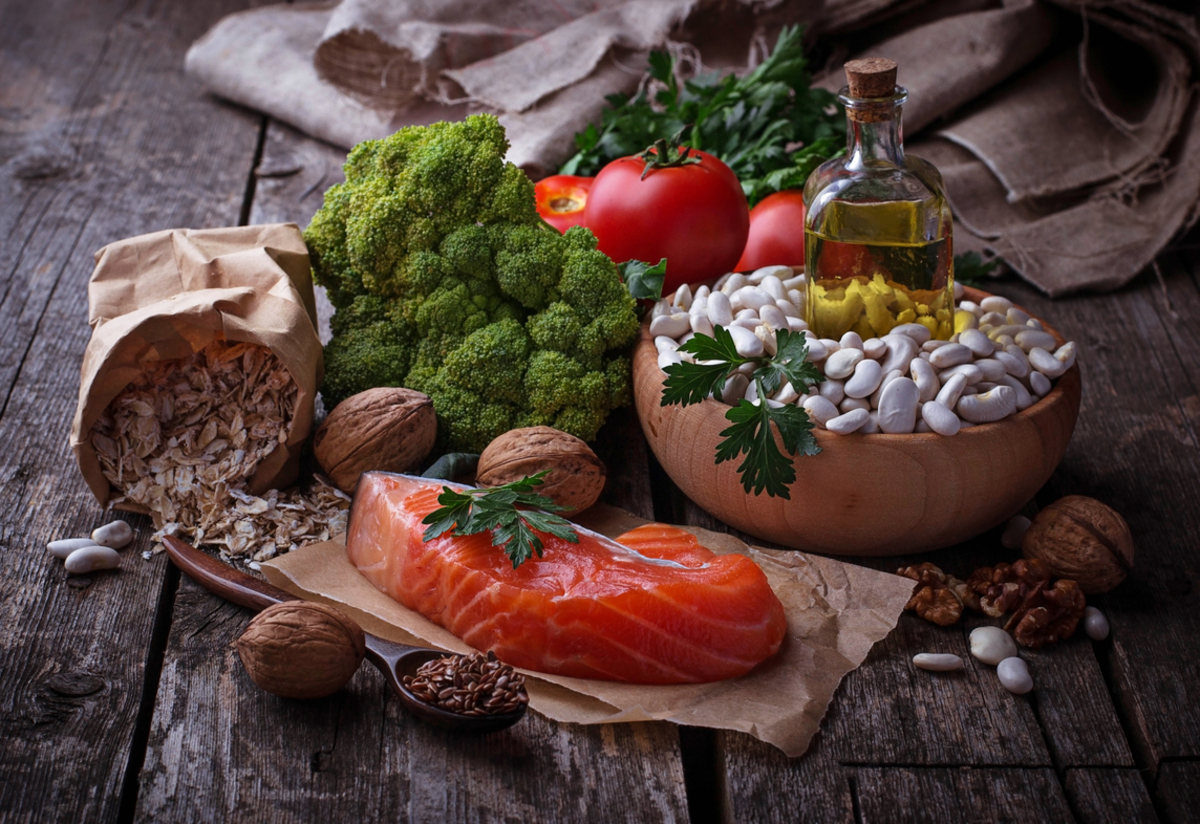Coronary artery disease is a condition that affects the blood vessels that supply your heart with oxygen and blood. People who have coronary artery disease have their heart’s blood supply restricted either because their artery is too narrow, or because blockages typically formed by blood clots are getting in the way.

What causes coronary artery disease?
Coronary artery disease is one of the major consequences of high cholesterol. Since cholesterol is naturally generated by the body (because it’s a useful part of hormone growth and cell health), the cholesterol you get from the food is actually a surplus. The more cholesterol-rich foods you consume, the higher your cholesterol levels will be. Since it travels through the bloodstream, having too much cholesterol causes it to stick to the inner lining of the arteries, leading to a condition known as atherosclerosis.
The trickiest part about cholesterol, atherosclerosis, and eventually coronary artery disease, is that they can get worse in time without "notifying" patients with any visible signs. That’s why everyone should monitor their cholesterol levels every five years as part of a test called a lipid panel.
High blood pressure, smoking, leading a sedentary lifestyle, or having diabetes can all also cause coronary heart disease. Interesting enough, all of these medical problems are linked to high cholesterol levels, either directly or indirectly.
Keeping cholesterol under control
If you have coronary artery disease, you most likely have high cholesterol as well. Regardless of the many treatments that keep blood clots in check, create paths around them, or dilate the blood vessels, you will have to treat the underlying cause of coronary artery disease by adopting a low-cholesterol diet.
Lifestyle changes are the number one solution to all cholesterol and heart-related problems. Even if you don’t have coronary artery disease, it is still important to have a balanced diet, while avoiding fatty foods as much as possible. If you have coronary artery disease, a healthy diet is the top medical recommendation that you’ll receive, regardless of whether you need medication or maybe a medical intervention (such as coronary angioplasty or a coronary artery bypass graft surgery).
Foods to avoid if you have coronary artery disease
Some of the foods that are rich in both cholesterol and saturated fats include:
- Dairy products such as cream, yogurt, milk, and cheese. Try to consume low-fat versions of these products, because the calcium found in milk, for instance, is essential for bone health and shouldn’t be avoided altogether.
- Animal fats are also a danger to your cholesterol levels.
- Contrary to popular belief, not all meat is threatening to cholesterol. You should avoid consuming meat which is rich in fat but also processed meats, like sausages.
There are also a few foods that are rich in cholesterol but don’t have that much saturated fats. That makes them safe to consume on a moderate basis, assuming that your current cholesterol levels aren’t through the roof. These include eggs, shellfish, and lean meat.
Know what to eat
To keep your cholesterol levels under control, you have to know which foods should absolutely be a part of your diet. One example is food rich in fiber, such as apples, whole grains, legumes, and beans.
The human body does not have the enzymes needed to break down soluble fiber, causing it to absorb water and form a paste as it moves through the digestive tract. As this occurs, these fibers will absorb bile, a substance secreted by your liver in order to aid it in fat digestion.
Other foods you can eat as part of your low cholesterol diet are fruits, vegetables, a selection of nuts, olive oil, or soy.
Raising good cholesterol
Not all cholesterol is bad. In fact, there is something called HDL, which is "good cholesterol". Without getting into too many details, the main thing you should know is that the more good cholesterol you have, the more likely it is to fight off the bad cholesterol. One of the best food sources for raising your good cholesterol levels are omega 3 fatty acids, which come mainly from fish and fish oil. If you replace two of your weekly fatty meat meals with a portion of fish, you are already on the right path.
Conclusion
- Photo courtesy of SteadyHealth


Your thoughts on this